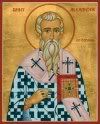If there has been a consistent “theme” or “interest” to my extracurricular reading in the last couple of years, it has been between the tension of reason and revelation. The 20th Century Jewish thinker Leo Strauss perhaps did more than any other modern mind to identify this tension and cogently argue that both, by being in tension, became the twin pillars of Western society. Though Strauss’ disciples, students, and critics have differed as to whether or not Strauss thought one ought to win out over the other or if a synthesis between the two could ever be accomplished, it seems clear to me that Strauss was extremely wary of one becoming subordinate to the other. Even if Strauss may have chosen “Athens over Jerusalem” in his own life, it remains unclear to me whether or not that is the desirable choice.
It is important to note that the tension of reason and revelation was for Strauss a phenomena best exemplified by the Jews, though I see no evidence why it ought to be limited to the Jews. Still, for Strauss the tension became strikingly apparent in the “Jewish problem” of modernity. In the wake of the Enlightenment, Jews were finally extended the chance for equal citizenship in civil society; and yet the “price” of that citizenship was that Jews could no longer be, well, Jews. Liberal democracy with its mind oriented ever towards pluralism could not accept the exclusive truth claims of Judaism. Instead, it offered the Jews new claims that oftentimes failed to square with identity of Jews as the chosen people of God in possession of the Law. Strauss thought that there could be no satisfactory answer to the “Jewish problem” or, at least, none that liberal democracy was capable of providing.
What has come to strike my interest now more specifically is whether or not there is a “Christian problem” developing in Western society today. Perhaps that problem ought to be narrowed down more to an “Orthodox Christian problem” as history has provided ample evidence of Protestantism’s assimilationist tendencies along with the Catholic Church’s proclivity for synthesis, even when it means its own weakening. Now, even with that being said I do have to admit that unlike the wider whole of Christendom or Judaism, Orthodoxy only occasionally blips on the sociopolitical radar; it is not a present force pluralism feels it must contend with directly nor does it, by and large, concern itself with a full fledged dialogue with the rest of the world. Orthodoxy is insular in many ways, though it seems inevitable that it will stop being so in the years to come.
My concern for the moment then revolves more around how Orthodox Christians individually ought to relate to liberal democracy and the claims of pluralism. It is true that liberal democracy has given the Orthodox Christian the right to be Orthodox, but surely not the means to be Orthodox. To be Orthodox in the truest sense seems to me to be nearly impossible if one expects to live their faith honestly. The claim to Truth in Orthodoxy is one that supercedes any claims liberal democracy could make, even those grounded in natural human reason. And while I am hesitant to say there is something fundamentally anti-intellectual or anti-reason in Orthodox Christianity, there exists little doubt in my mind that the claims of Orthodoxy, rooted in revelation, cannot be explained by reason nor find support from it. There is simply an arena too exclusive and pure to allow anything else in it. To do so would be to blacken that purity to the end result of no longer having Orthodox Christianity at all.
For my part, I wonder how far I can take my faith into the wider society and what I could ever bring back from it that would not poison my faith. I must live “in the world” but can I allow my thought to be “of the world”? More confusing to me is what “the world” even is. Is it the thought of this world—that is, the modern world—which I must throw off, or the thought of the world as it has always existed? Should I simply live a sham social existence as a good citizen of an arbitrarily drawn nation despite the fact nothing it says can be anything but superfluous at best or complete lies at worst? Perhaps there are important distinctions I haven’t even considered yet. I worry, however, that this problem will remain the problem of my life and one I have not a single hope of resolving.
























